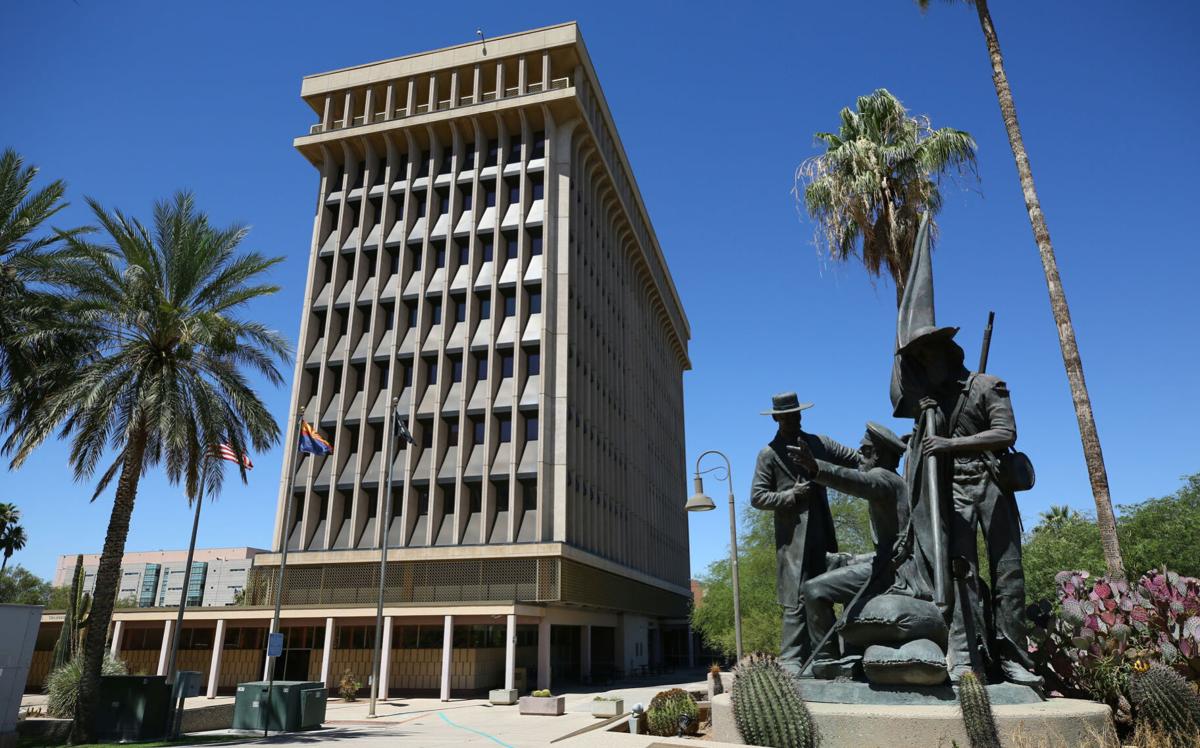Tucson City Council has taken the first step in designating the funds from raising water rates for Tucson Water customers in unincorporated Pima County by expanding the utility’s low-income program.
The council adopted changes Tuesday, Jan. 11, to improve access to Tucson Water’s low-income program while providing emergency assistance to customers experiencing hardships.
When City Council adopted differential water rates in June, it identified three spending areas to allocate the $9.9 million annual revenue it anticipates generating from the new rates: low-income assistance, climate resiliency and infrastructure upgrades.
The water utility already offers discounts on monthly water bills for customers based on their monthly income and the number of individuals living at their residence. Customers previously had to prove the number of people in their homes by providing social security numbers for each resident.
Now, with the new guidelines adopted Tuesday, customers seeking assistance can self-attest to the number of people in their homes without having to provide Social Security numbers. And when customers provide proof of participation in public assistance programs such as Section 8, SNAP and Head Start, they will automatically qualify for a 25% discount.
“The goal is to try to make it easier for people to apply,” said Silvia Amparano, the deputy director of Tucson Water. “One of the reasons why people get denied is that they don’t have documentation to prove their identity, and so one of the goals for mayor and council was to make it as easy as possible and have them self-certify the total number of people who are living in the household.”
City Council also approved an emergency hardship program for customers experiencing job loss, serious illness or family loss regardless of their income. Amparano anticipates this assistance will be available by March 1.
Customers who can provide documentation proving one of these circumstances will be eligible for a credit up to $150 based on their need and availability of program funds. The average customer’s water bill is $42 a month, so the program would grant about 3½ months of coverage, on average.
“Our call takers who deal with customers on the front lines hear from people when they can’t pay a bill, the reasons why. Something’s happened in their life, it’s a temporary crisis that they need a little time or help to get their finances in order,” Amparano said. “This is just a little bit of help to get through that temporary crisis.”
City staff estimates the program additions will cost $350,000 to $450,000 a year, but Amparano called this a “rough estimate,” as it’s unclear how many customers will take advantage of the program.
At the highest estimate, the new options would bring Tucson Water’s annual low-income program cost from $1.8 million last fiscal year to about $2.25 million this year. For now, that money will come from general utility revenues, as differential rates only went into effect on Dec. 1 and are not expected to be spent until next year, according to Amparano.
Pima County has sued the city for the policy change and is in active litigation to put an end to differential rates. If the county succeeds in making the city disband its implementation of differential rates, it’s unclear if City Council’s goals for low-income assistance, climate resiliency and infrastructure would be met to the same level without those funds.
“We will meet our commitments to the community as expressed by mayor and council. This includes our robust customer assistance programs as approved by mayor and council,” Assistant City Manager Timothy Thomure said in an email.
City Council voted Tuesday to split the $9.9 million in differential rate funds into thirds toward each of the three dedicated areas. That means the low-income program will have about $3.3 million in funding, leaving room for further growth.
One idea for the program’s expansion is to extend water discounts to renters. In order to qualify for water discounts, Tucson Water customers must have the utility statement in their name — a requirement many renters do not meet.
Amparano told the mayor and council on Tuesday that one concept is to create an agreement between renters and landlords who have the utility in their name. If both parties agree to the discount, the amount could be removed from the tenant’s rent.
“How do we help the renters that may not necessarily have the bill in their name, making sure that they actually get the benefit, not the landlord?” Amparano said. “We need more time to look at what makes sense and how much it would potentially cost because the more we expand it, the more it costs, and we got to make sure that we can fund it.”
The current plan is to reach out to ratepayers to spread the word of the existing low-income program and its new additions.
“I plan to do some very focused outreach to the low-income community based on the census tract information,” Amparano said. “The hardest part about the low-income program is letting people know that it’s available and having people take advantage of it.”





